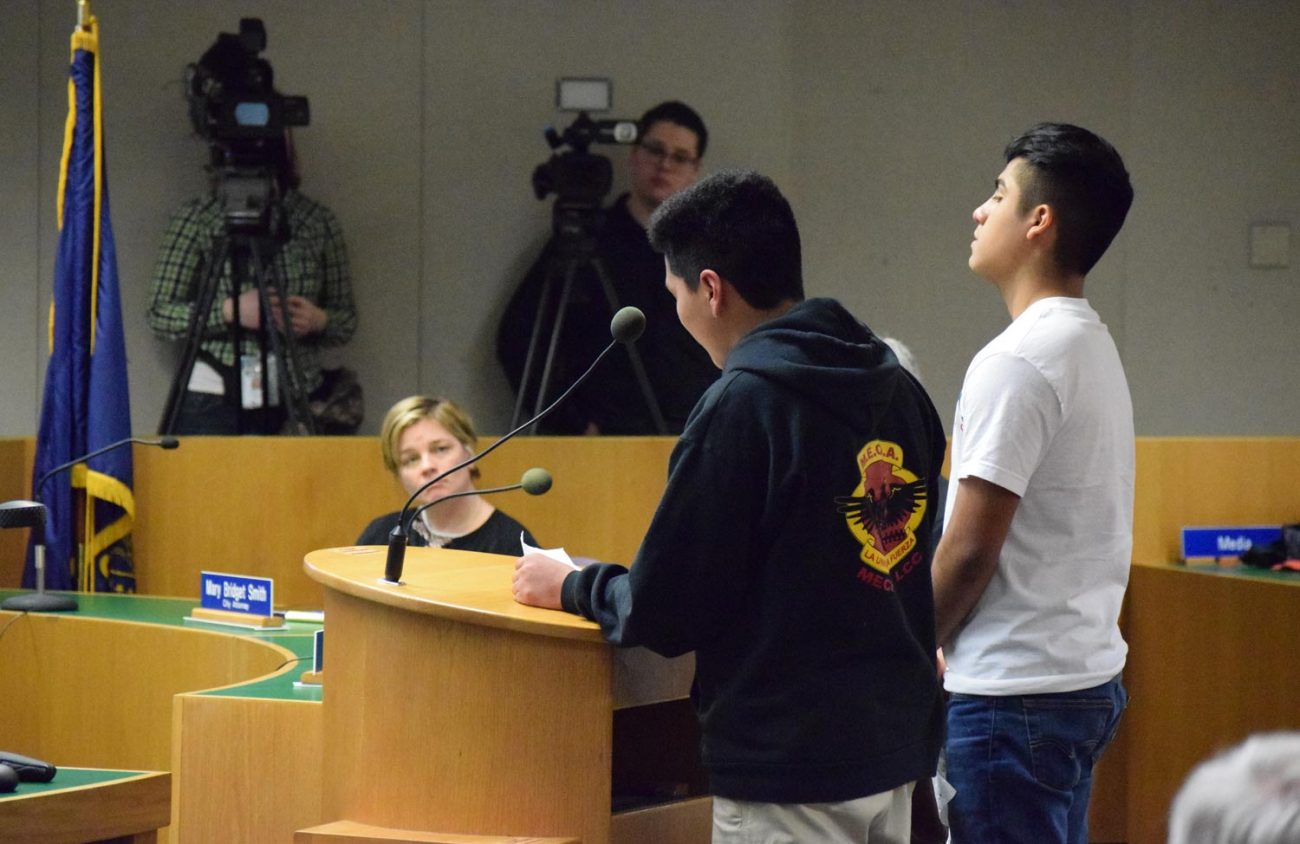Mayor’s last-minute change from a resolution surprises community members
By Henry Houston
After nearly six months of discussion, Springfield will join dozens of cities nationwide, including Eugene, to recognize Indigenous Peoples’ Day on the second Monday of October.
Springfield Mayor Christine Lundberg issued a proclamation at the beginning of the March 20 City Council meeting to recognize Indigenous Peoples’ Day. The wording commits the city to protecting the dignity of all people who live and work in Springfield and aims to uphold the United Nations Declaration of the Rights of Indigenous People.
For some advocates, though, the proclamation was seen as just words and no action. Community members who attended the meeting and expected the council to vote on a full council resolution say they were surprised when they picked up the city council agenda.
A proclamation is what the mayor issues without a council vote, legislative and public affairs manager Niel Laudati says.
Those pursuing Indigenous Peoples’ Day originally requested a resolution, but Lundberg instead decided to place it on the March 20 agenda as a proclamation, Laudati says.
“I felt that I could do more as a proclamation,” Lundberg tells EW.
Putting it on the agenda as a proclamation changed the tone of those who spoke during the city council meeting from celebratory to critical.
“I just want to stay firm that the indigenous community is asking for a resolution,” says Ada Ball, a Siletz and Klamath tribal member. “A proclamation is very nice, but now is not the time for statements. A resolution is action.”
The issued proclamation also did not mention Christopher Columbus in its text. Indigenous Peoples’ Day — usually observed on the same day as Columbus Day — transforms a celebration of colonialism into a reflection upon the ongoing struggles of indigenous peoples and a celebration of their cultures and values.
“It wasn’t just my opinion to remove the paragraph about Columbus Day. It was an informal discussion with councilors,” Lundberg says. “So I very adamantly wanted to do the positive, which is to recognize indigenous people, than make a negative statement and make someone feel slighted in some way.”
The fact that Springfield’s councilors did not vote on a resolution worries Phil Carrasco, co-founder of Grupo Latino de Acción Directa. Carrasco says that since white supremacist narratives have permeated down to the local level from the Trump administration, it is important for local governments to confront racism.
“The importance in passing a resolution is that it establishes language that points to potential future actions on behalf of this city government on Kalapuya land,” he says. “Government to government.”
Discussion of the proclamation began when Leilani Sabzalian and Ball brought about 40 youths from Springfield’s Chifin Native Youth Center to the Sept. 20, 2016, Springfield City Council meeting to express support for formally recognizing Indigenous Peoples’ Day in Springfield.
Because only 15 minutes is allotted for business from the public, and a public hearing was not scheduled, only a few were able to speak. Afterwards, Springfield city officials worked with Sabzalian and Ball and the city’s Committee for Diversity and Inclusion to provide a recommendation for the council. That resulted in the proclamation, though it was originally slated as a resolution requiring a vote.
Wording of the proclamation came from the Committee for Diversity and Inclusion; it was inspired by other proclamations and resolutions, Lundberg says.
Springfield does not officially recognize Columbus Day and neither does the state of Oregon, though it is a federally recognized holiday.
